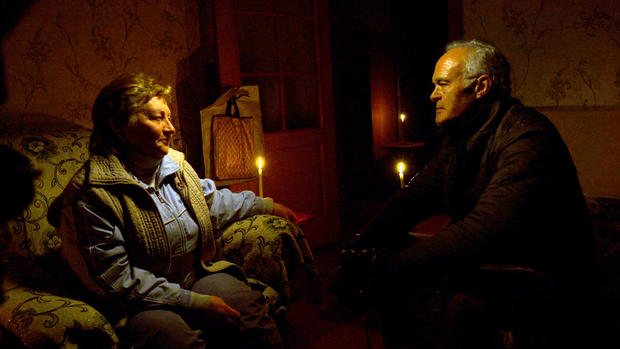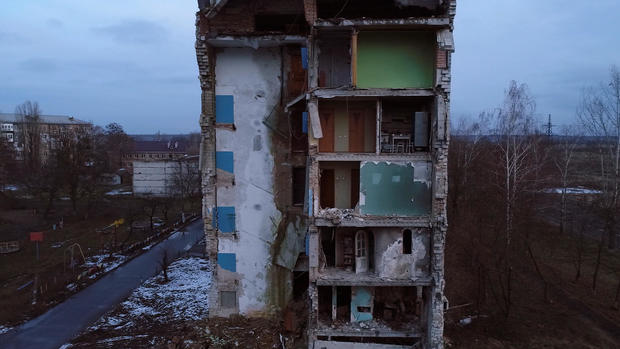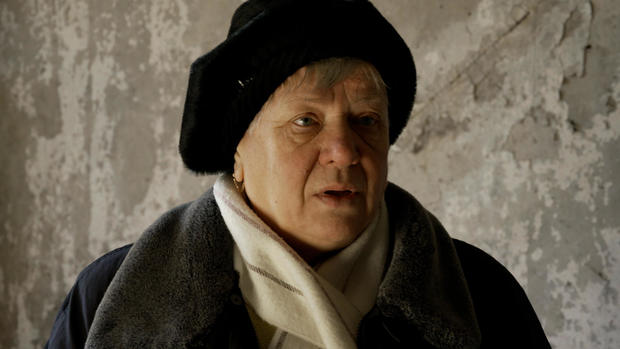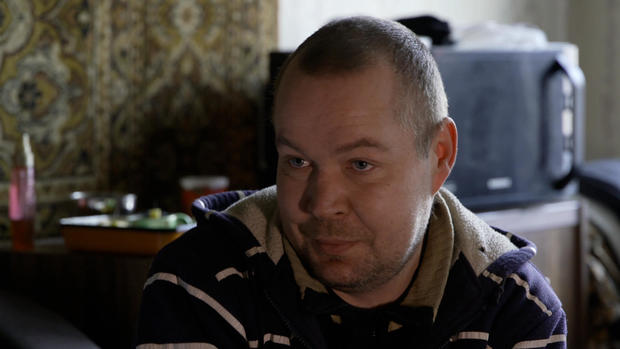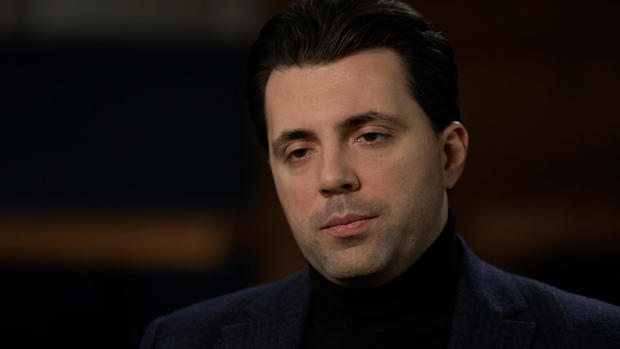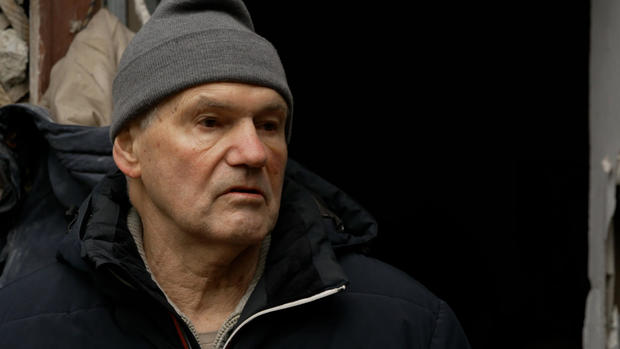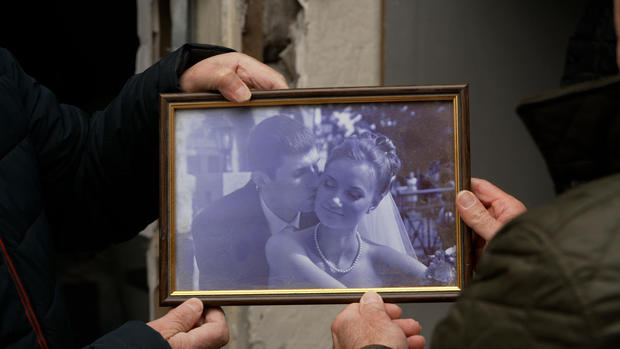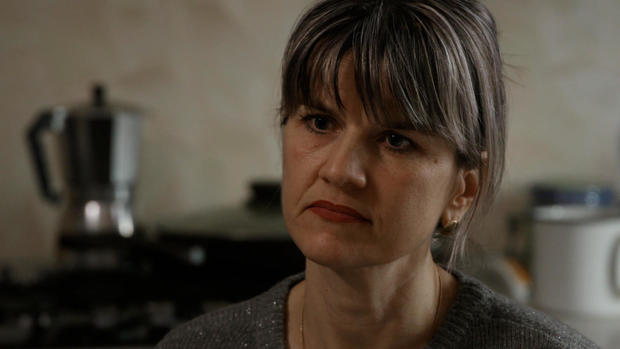“They have destroyed our life”: Ukrainians endure hours or days without light, heat, or water – 60 Minutes
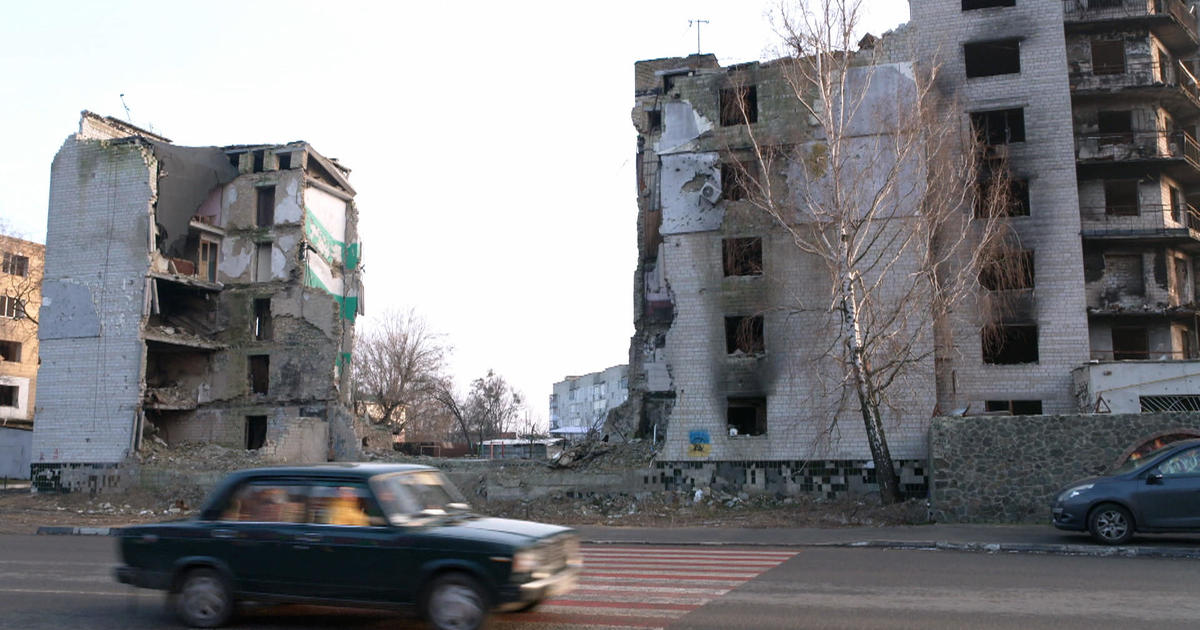
This past week, Vladimir Putin unleashed another air assault on Ukrainian families and their power grid in his campaign to turn winter into a weapon of mass destruction. Forty-four million Ukrainian men, women and children endure hours or days without light, heat or water. We met some of them on Central Street in a town called Borodianka, northwest of Kyiv. As you’ll see, in the blackest days in Europe since World War II, we found families facing terror with candles against the darkness.
The power was out the night we met Vira Savchenko. The great grandmother is the only soul left in her Central Street apartment block. Back in March, when Borodianka was bombed, the widow moved out, but, she told us…
Vira Savchenko (Translation): On the 20th of May I said: “That’s it. I’m going home.” They tried to talk me into staying but I said, “No, I’m going home.”
‘They’ were her daughter and son-in-law who took her in after the invasion.
Vira Savchenko (Translation): My son-in-law said, “Let her go. She’ll get cold, and she’ll come back.” But out of principle I decided, no, I won’t go back. And so, I didn’t. I stayed here.
Her principle is defiance, undimmed in the fragile light, unbroken by the 25-degree night. The sign on her door reads “danger.” And the view from an apartment in her building reveals why. This is Central Street in Borodianka.
Central was on Russia’s invasion route. In March, Putin’s airforce destroyed 144 buildings in Borodianka. Ukraine drove Russia out. But Central is crowded with gaunt memorials to more than 100 murdered civilians.
Survivors include 65-year-old widow, Tatiana Sologub, who we found shoveling the ashes of her life.
Tatiana Sologub (Translation): I don’t even have a spoon or a bowl. Everything, everything was here. I’ve been left with nothing.
On her balcony, she told us her son enlisted in the army the first day of the invasion. She’s now moved into a public shelter powered by a generator but her neighbor, Serhii Bondarenko, showed us how millions of Ukrainians endure Putin’s war on light and heat.
Serhii Bondarenko (Translation): For now, we have firewood. We survive anyway we can.
Bondarenko’s new wood stove is vented through a hole he knocked in the wall. A car battery powers a string of lights. And well water fills in for the dried up tap. We noticed a thermometer inside was chilled to 40 degrees. But he told us, “we’re Ukrainian…”
Serhii Bondarenko (Translation): If the temperature outside is above [freezing] we open the windows so the [heat] can get in.
A sense of humor and ingenuity sustain Ukraine though the worst aerial bombardment of Europeans since World War II.
There have been 14 massive assaults on the national power grid in the last 18 weeks. Every power plant has been hit. Half the electricity is out. There have been a few days without blackouts. But for the most part, power is rationed roughly four hours on–four off—nationwide.
In October, drones zeroed in on the headquarters of the national power company, Ukrenergo. That’s the CEO, Volodymyr Kudrytskyi, watching a drone take out the top two floors of his building.
Scott Pelley: In this war on Ukraine’s power grid, what’s at stake?
Volodymyr Kudrytskyi: The war itself. The victory. We cannot allow them to destroy the power grid.
Kudrytskyi allowed us to see a damaged facility which is now among the most sensitive national security sites in Ukraine. When this 200-ton transformer burned, hundreds of thousands lost power. Crews race to improvise repairs and sprint to shelter when the missiles come back. Some have been killed.
Scott Pelley: your crews are on the front line almost like a soldier.
This engineer is in charge of repairs nationwide, and so, for security reasons, they asked us not to use his name.
ENGINEER: The Armed Forces of Ukraine have their frontline that they defend and we hold the energy front. So, yes, these are practically soldiers.
Scott Pelley: What are the Russians trying to do?
Volodymyr Kudrytskyi: So they cannot win the war at the battlefield, so they are effectively terrorizing population, civilians, to blackmail political leadership to start negotiations. This is what they are doing.
Scott Pelley: This is terrorism in your view?
Volodymyr Kudrytskyi: Absolutely, yes.
Terror found Anatoliy Kaharlitskiy on the quiet street where he’s lived 40 years. His family was cooking up a New Year’s Eve celebration when a missile meant for the grid ruined his hopes and plans for all the years to come.
He found his daughter-in-law in the wreckage of his home.
Anatoliy Kaharlitskiy (Translation): [She was] crushed. Broken. She died in an instant.
He’s a retired reporter–used to making sense of facts–but in this there is only bewilderment.
Anatoliy Kaharlitskiy (Translation): I don’t understand [why] this is happening. This is “Russia’s world.” This is how they are “liberating” us.
Scott Pelley: These are pieces of the missile?
Anatoliy Kaharlitskiy (Translation): Yes, pieces of the missile. All of this was flying here and there. How can you escape from it?
Kaharlitskiy did not escape. “They stitched me up all over,” he said. His wife survived with their son and grandson. Iryna, his daughter-in-law, was 36.
Scott Pelley: Was this their wedding day?
Anatoliy Kaharlitskiy (Translation): Yes, yes, this was the wedding day.
She was an accountant and mother to a 10-year-old son.
Scott Pelley: What should the world know about this war?
Anatoliy Kaharlitskiy (Translation): People should realize that this infection that’s coming from Moscow it won’t stop here. If they overcome us here, they’ll move further into Europe. I am 74 years old. I went to the gun range for shooting practice. I will fight if they come here. I will fight until they kill me.
Recently, Ukraine has been killing more of the missiles aimed at the grid. Kyiv cops mortally wounded a slow flying drone.
Below the sound of gunfire, the capital of 3 million vibrates with some of the 800,000 generators Ukraine has imported.
At night, the city darkens most windows and kills its street lamps, leaving mostly headlights under a winter sky too thick for the moon.
An estimated 1,200 missiles and drones have attacked the grid and back on Central Street, we found a woman who can sum up the rage. Oksana Koronik, is a nurse who is camping in her blacked-out apartment with her husband and son. She seems to be fighting the whole Russian army to claw back something normal.
Scott Pelley: When you came back home after the bombing, what did you see?
Oksana Koronik (Translation): Horror. Horror. It hurt. Every cell in my body was in pain. I could not bear to see it. we poured our soul, our finances, our work into [this]. I cried for, probably, 3 weeks.
The gas is back on in apartment 28. But for lights and phones she has car batteries that last 9 hours if she’s careful. Groceries are chilled in a room with a window cracked. And it galls her when Timothy misses online school because the power’s out. This is his actual school on Central Street. Ukraine says Putin has destroyed 214 schools. The U.N. counts 683 attacks on hospitals and clinics.
Scott Pelley: the Russians say that they’re attacking only military targets.
Oksana Koronik (Translation): No. They have destroyed our life. They destroyed our kindergarten. They destroyed our school. They destroyed our music school. For some people, they’ve even destroyed their workplace. They have destroyed everything. They have destroyed us from the inside out. I recognize now that I am feeling hatred for other people. I was never this kind of person before.
But then, she’d never downloaded an air raid app before. It’s connected to the national warning system. But she finally muted the sound– too many sirens day and night.
Scott Pelley: The Russians believe that if they can keep your family in the dark and in the cold long enough, your will to resist will dissolve.
Oksana Koronik (Translation): No, [our will] will not disappear. It will only get stronger. I really want to go and give those Russians, that Putin a really great slap in the face. A great big slap in the face, from a woman. They only make themselves more hated, while we are becoming more and more united.
As on every front in his unprovoked Ukraine fiasco, Putin has failed here too. He came up against Vira Savchenko—her fingers working and her heels dug in.
Vira Savchenko (Translation): Somehow, I am not afraid anymore. On Thursday in the city center, there’s a market. This Thursday there were air [raid] sirens, there was shooting. But for some reason it didn’t frighten me this time. I turn [up the volume] on TV or radio [so I don’t] hear anything.
In a condemned building on Central Street, we saw Putin’s terror campaign uniting Ukrainians like Americans after 9/11. We left a great grandmother knitting diligently into a dim, cold night. Knitting, with a vengeance. Knitting socks for Ukrainian soldiers.
Produced by Maria Gavrilovic and Alex Ortiz. Broadcast associate, Michelle Karim. Edited by Michael Mongulla.
Share this news on your Fb,Twitter and Whatsapp
Times News Network:Latest News Headlines
Times News Network||Health||New York||USA News||Technology||World News
